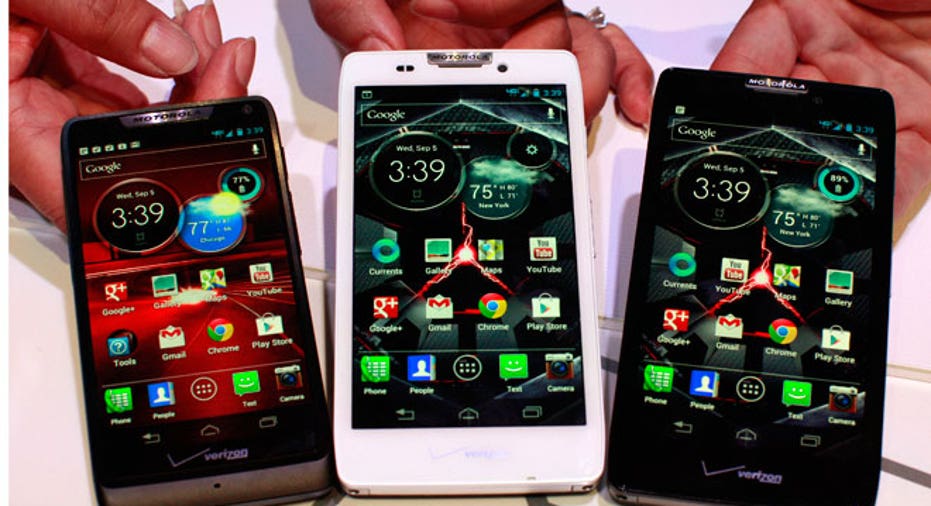Motorola Unveils Intel-Powered Smartphone

Google's Motorola Mobility unveiled its first smartphone handset to be powered by an Intel (NASDAQ:INTC) processor on Tuesday, featuring a wide screen and longer-life battery to better compete against Apple's iPhone (NASDAQ:AAPL) and Samsung.
The Razr i will launch in Argentina, Brazil, Britain, France, Germany and Mexico in October, as the first handset of a multi-device agreement between the two groups.
With a 4.3-inch display and Google's Android platform, the Razr i is similar to the Razr M unveiled earlier in September for U.S. consumers, but its brain is an Intel processor instead of a chip made by Qualcomm.
Choosing Intel's chips is unusual in the smartphone and tablet industry, where energy-efficient processors made by Qualcomm and Samsung using technology licensed by British group ARM Holdings are widely favored.
Intel dominates the PC industry but has been slow to adapt its powerful processors to work well in battery-sensitive mobile gadgets and is now rushing to catch up.
Motorola's Andrew Morley, the general manager of Britain and Ireland, said the new chip enabled users to switch quickly between accessing the web, playing games, sending texts and activating the camera. The screen has virtually no border, so it also compares well in size to other rivals.
"This chipset gives us exactly what we want to launch in these markets," Morley told Reuters. "It gives us the ability to create a compact device, it gives us speed and it's a mid to high tier, mass market device.
Motorola says the battery is 40 percent more powerful than Apple's iPhone 4S and the camera can take 10 shots in under a second. There were no comparisons available with the new iPhone 5, which hits the shops later this month.
The new Motorola phone uses a new version of Intel's Medfield smartphone processor running at 2 Gigahertz, faster than the 1.6 GHz versions used in phones launched earlier this year by Orange in Britain, MegaFon in Russia and Lava International in India.
Those phone launches were Intel's first significant foray into the mobile market, and the Medfield chips used in them have performed better than many skeptics expected.
The earlier Razr M includes Qualcomm technology compatible with high-speed Long Term Evolution (LTE) networks in the United States, while the Razr i is limited to slower 3G phone networks relied on more in Europe, Latin America and other parts of the world.
Offering the similar Razr i and Razr M phones, powered by Intel and Qualcomm chips respectively, will create a new opportunity for investors to compare the performance of the two companies' best chips.
The combined market for PCs, smartphones and tablets is expected to almost double over the next four years, but Intel's share of the processors used in them will dip from 35 percent to 29 percent, according to market research firm IHS iSuppli.



















